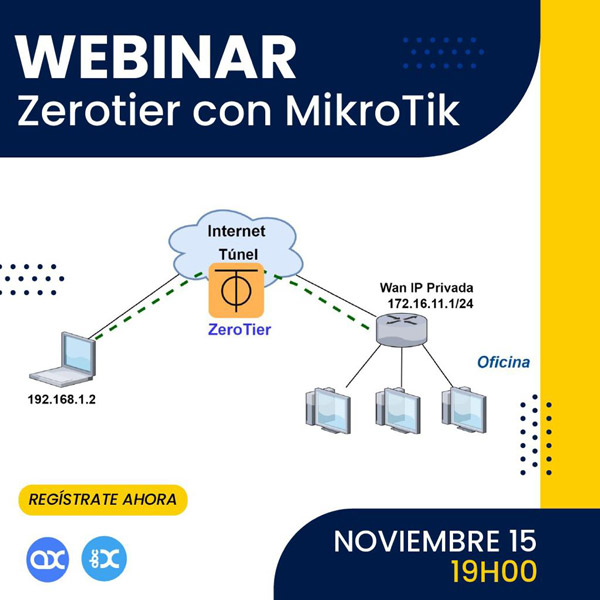Most common searches
Mikrotikfirewallvpnhome apnetinstall
Main differences between IPv4 and IPv6
IPv4 and IPv6 are two versions of the Internet Protocol (IP) that are used to direct data traffic on networks. Although both perform the same basic function, which is the identification and location of devices on a network, there are significant differences between them in terms of capacity, configuration and functionalities.
We explain the main differences between IPv4 and IPv6:
1. Address Space
- IPv4: Uses 32-bit addresses, providing approximately 4.3 billion unique addresses. Although this seems like a lot, the rapid expansion of the Internet has exhausted almost all of these addresses, leading to the need for a new version.
- IPv6: Employs 128-bit addresses, providing approximately 3.4×10383.4×1038 addresses, a nearly unlimited amount that can handle the growing number of Internet-connected devices and ensure address availability for the foreseeable future.
2. Configuration Simplification and Automation
- IPv4: Generally requires manual configuration or address assignment using a DHCP server. Although effective, this process can be administratively intensive.
- IPv6: Introduces stateless autoconfiguration (SLAAC), allowing devices to generate their own addresses using the device's MAC address and locally available network information. This can significantly reduce the need for manual address management and reliance on DHCP.
3. Security
- IPv4: Security was not originally designed into the IPv4 protocol, which led to the creation of additional solutions such as IPsec to secure communication on the network.
- IPv6: Security is built into the protocol, with IPsec being a mandatory part of the specification. This means that IPv6 has the ability to provide natively authenticated and encrypted communications.
4. Packet Fragmentation
- IPv4: Allows routers to perform packet fragmentation if the packet is too large for the next network. This can increase the load on routers and affect performance.
- IPv6: Prohibits fragmentation by routers along the way. Fragmentation is handled only on the source devices, reducing the load on the network and improving overall performance.
5. Address Representation
- IPv4: Addresses are represented in dotted decimal notation, for example, 192.168.1.1.
- IPv6: Addresses are represented in hexadecimal notation and are divided by a colon, for example, 2001:0db8:85a3:0000:0000:8a2e:0370:7334. Additionally, IPv6 allows zero compression, simplifying the representation of long addresses.
6. Multicast support
- IPv4: Supports limited multicast through specific addresses.
- IPv6: It has more robust and efficient support for multicast, as well as new features such as neighbor discovery (NDP), which improves network efficiency and scalability.
These differences make IPv6 not only necessary to address the IP address shortage, but also offer significant improvements in terms of performance, security, and network management.
The transition from IPv4 to IPv6 is an ongoing process and is essential for the sustainable future of the Internet and interconnected networks.
| IPv4 | IPv6 | |
| Size | 32 bits | 128 bits |
| Number of addresses | 2^32= 4294.967.296 | 2^128= 340 sextillion |
| Address format | 192.168.0.1 (decimal) | 2001:db8:1:2:3:4:5:8 (hexadecimal) |
| Header length | 20 bytes | 40 bytes |
| Address resolution | ARP | ND |
| Types of addresses | unicast,broadcast,multicast | unicast,multicast,anycast |
- Share this Article
Facebook
Twitter
LinkedIn
WhatsApp
Telegram
Other documents in this category
Tutorials available at MikroLABs
No Courses Found!









